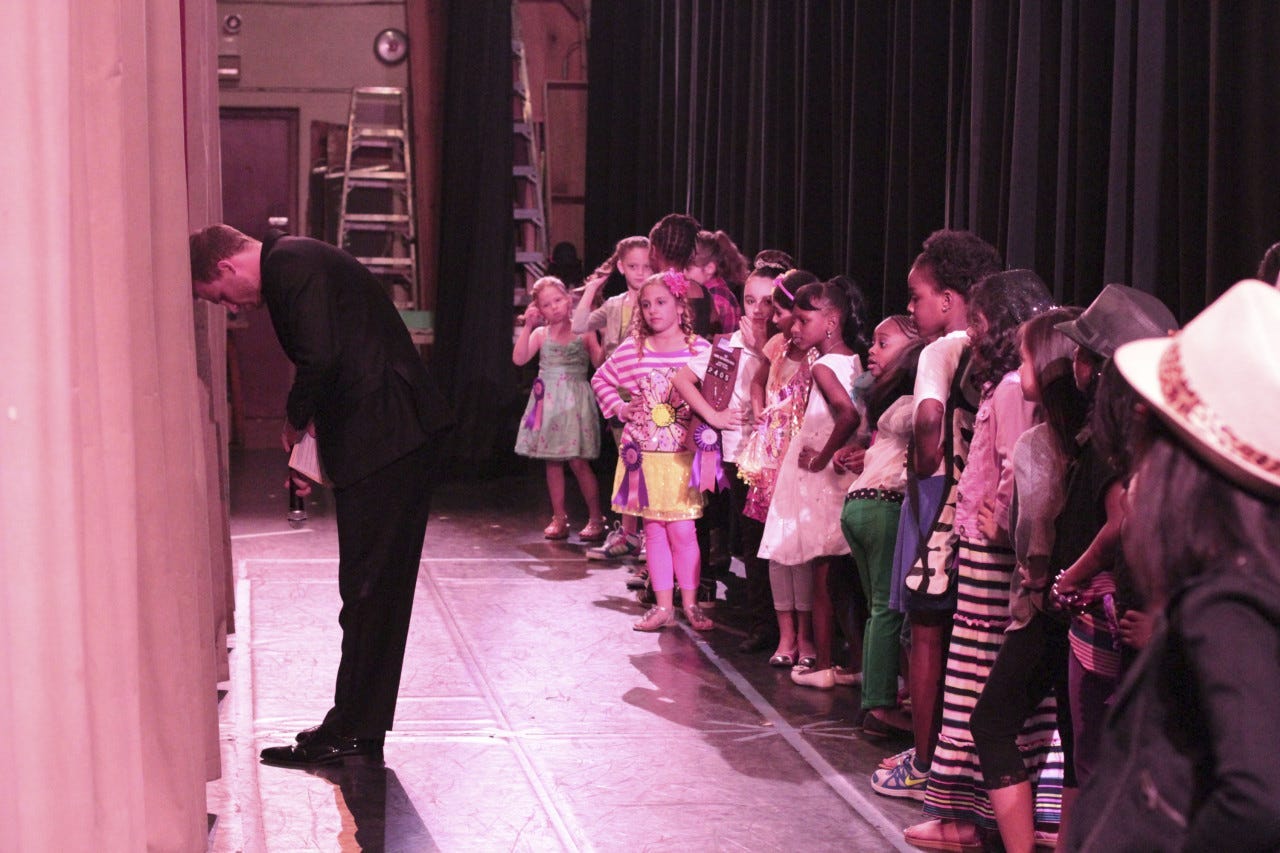The Strange Life of a Teenage Pageant Host
Fainting. Crying. Puddles of pee. Welcome to the world of Zak Slemmer, and the youth beauty contests he so desperately loves.
On weekdays, Zak Slemmer is an ordinary blonde-haired, blue-eyed twentysomething with a habit of making inappropriate jokes and a wardrobe only slightly more advanced than a college student’s.
But on weekends, Slemmer can be found clean-shaven, clad in a tuxedo and arm-in-arm with beautiful young women—at least when he isn’t consoling crying girls, catching sweet lasses before they drop to the ground in a faint and, once in a while, standing in puddles of urine.
Welcome to the life of a teenage beauty pageant host.
“I have been doing this for about a year now,” Slemmer said by phone from Phoenix, where he was hosting the 2013 Miss Teen Phoenix/Tucson Pageant one weekend in mid-March. “And I gotta tell you, I absolutely love it. It’s great for me, because I have a silly, not-serious personality, and young people and I seem to get along. And professionally, I get to be on stage wearing a tuxedo and presenting a show, and I enjoy that.” In the past year, Slemmer has …
Keep reading with a 7-day free trial
Subscribe to Narratively to keep reading this post and get 7 days of free access to the full post archives.




